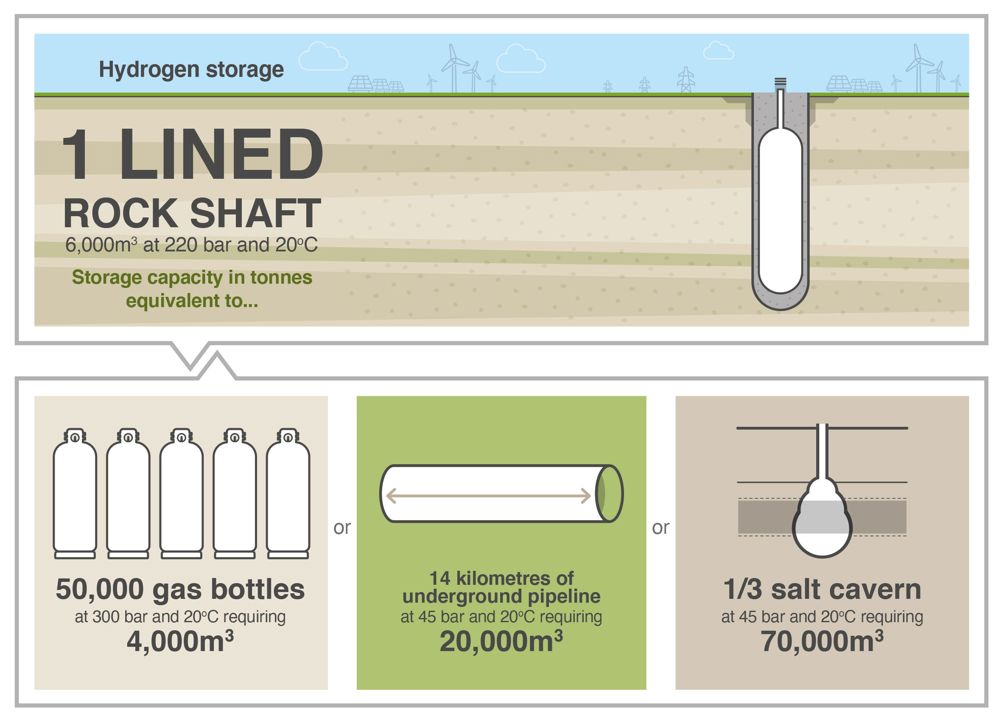The patented system uses lined geological shafts to store up to 100 tonnes of pressurised hydrogen at 220 bar, equivalent to about 3.33GWh of energy. Unlike natural storage such as salt caverns and disused gas fields, the shafts can be sited anywhere. Gravitricity has previously stated its preference for co-locating the storage near to renewable generation and potential major consumers of hydrogen such as heavy industry.
Related content
“The future large-scale adoption of green hydrogen in industrial processes and for heat and transport will require safe and cost-effective mid-scale hydrogen storage which can be located wherever required – both in distribution networks and at point of use,” said Martin Wright, Gravitricity co-founder and executive chairman.

“Each H2FlexiStore can store up to 100 tonnes of pressurised green hydrogen safely below ground in a lined rock shaft which can be built more cheaply than above ground vessels, with a much smaller visual footprint. We believe it will be a key technology in gas networks of the future and we look forward to working closely with National Gas to share our combined expertise.”
National Gas, which owns and operates the UK’s gas transmission system, is investigating the potential to incorporate hydrogen into its existing network, with storage a key component.
Backed by funding from Ofgem’s £450m Strategic Innovation Fund (SIF), National Gas will now conduct a three-month feasibility study on the use of H2FlexiStore.
It applied to Round 3 of the SIF as part of a consortium including Gravitricity, Southern Gas Networks, Edinburgh University, Energy Reform and Revolutionary Engineering and Design. The partners said the initial study could lead to a full-scale demonstrator project commencing in 2025.
“Hydrogen storage will be important in ensuring a robust and resilient supply of energy to the UK in the energy transition,” said Corinna Jones, head of Innovation at National Gas.
“Novel technologies and solutions such as this are key to helping us achieve net zero targets by 2050.”











Taking steps toward reindustrialisation
High value is not the same as high cost/price and does not need excessive automation. Appropriate and innovative manufacturing tools are what led (in...